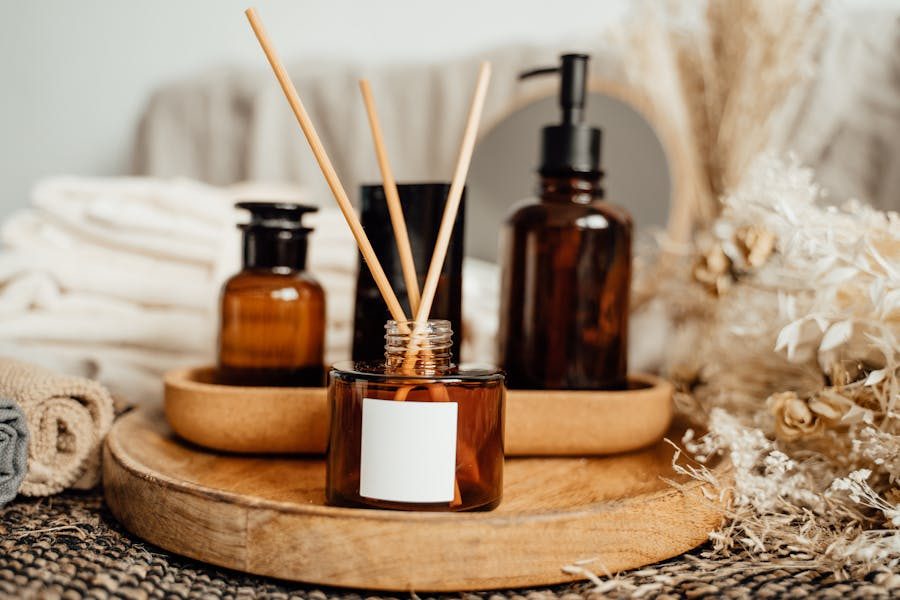


Have you heard about the benefits of aromatherapy for dementia? Recent studies suggest this age-old practice could offer unexpected benefits for those grappling with memory loss and cognitive decline.

Aromatherapy is not merely about pleasant fragrances. This approach uses plant-sourced essential oils to enhance well-being. For people with dementia, it might be more than just a lovely scent – it could be a way to ease some troubling symptoms.
Potential Cognitive Benefits
While there’s limited direct research on combining lavender oil with physical therapy for seniors with dementia, we can explore the potential cognitive benefits based on what we know about each approach separately. Here’s a more detailed look:
Enhanced Relaxation During Exercise
Improved Mood and Motivation
Better Sleep Quality
Reduced Anxiety
Potential Memory Enhancement
Increased Sensory Stimulation

While dementia is challenging, aromatherapy offers a potential bright spot.
Though it’s not a miracle solution, the calming fragrances of lavender, lemon balm, and grapefruit might bring a welcome change to your daily caregiving tasks.
From soothing agitation to promoting restful sleep and possibly boosting mood and cognitive function, aromatherapy is a low-risk, high-reward option for dementia care.
Keep in mind that every individual’s experience with dementia is distinct.
What works wonders for one might not suit another. As you explore the benefits of aromatherapy for dementia, keep an open mind, start slowly, and always consult with healthcare professionals.
What improves the quality of your loved one’s life? Sometimes, that might just come in the form of a soothing scent.

Q: Can I combine lavender oil with other calming therapies for dementia?
A: Absolutely! Lavender oil can be a great complement to other relaxation techniques like gentle music or light massage. Just be sure to introduce new elements gradually.
Q: How does lavender oil interact with common dementia medications?
A: While lavender oil is generally considered safe, it’s always best to check with your loved one’s doctor. Some essential oils can interact with medications, so it’s better to be safe than sorry.
Q: Are there specific guidelines for using lavender oil with someone who has dementia?
A: Start with a significantly diluted solution and observe any reactions. Use it in a well-ventilated area; never apply undiluted oil directly to the skin. If using a diffuser, start with short periods and gradually increase if well-tolerated.
Q: Could combining lavender oil with physical therapy benefit seniors with dementia?
A: The idea of combining lavender oil with physical therapy is worth considering.
Although no specific studies have examined this particular combination, the individual benefits of aromatherapy and physical therapy for those with dementia are well-documented.
Enhancing relaxation through lavender oil might make physical activities more enjoyable for dementia patients.
Q: How might lavender oil affect the quality of life for those with dementia?
A: Lavender oil, with its calming effects, may improve the quality of life for those with dementia by fostering better sleep and reducing agitation.
Yet, as the impact can vary widely among individuals, monitoring their responses and making necessary adjustments is essential.
It’s crucial to remember that the potential benefits of aromatherapy for dementia are still being explored.
While it appears promising, it is not a substitute for medical care. Before adopting new dementia care strategies, consult your physician.
Learn more about dementia care. Contact Applewood Our House Assisted Living Memory Care today.